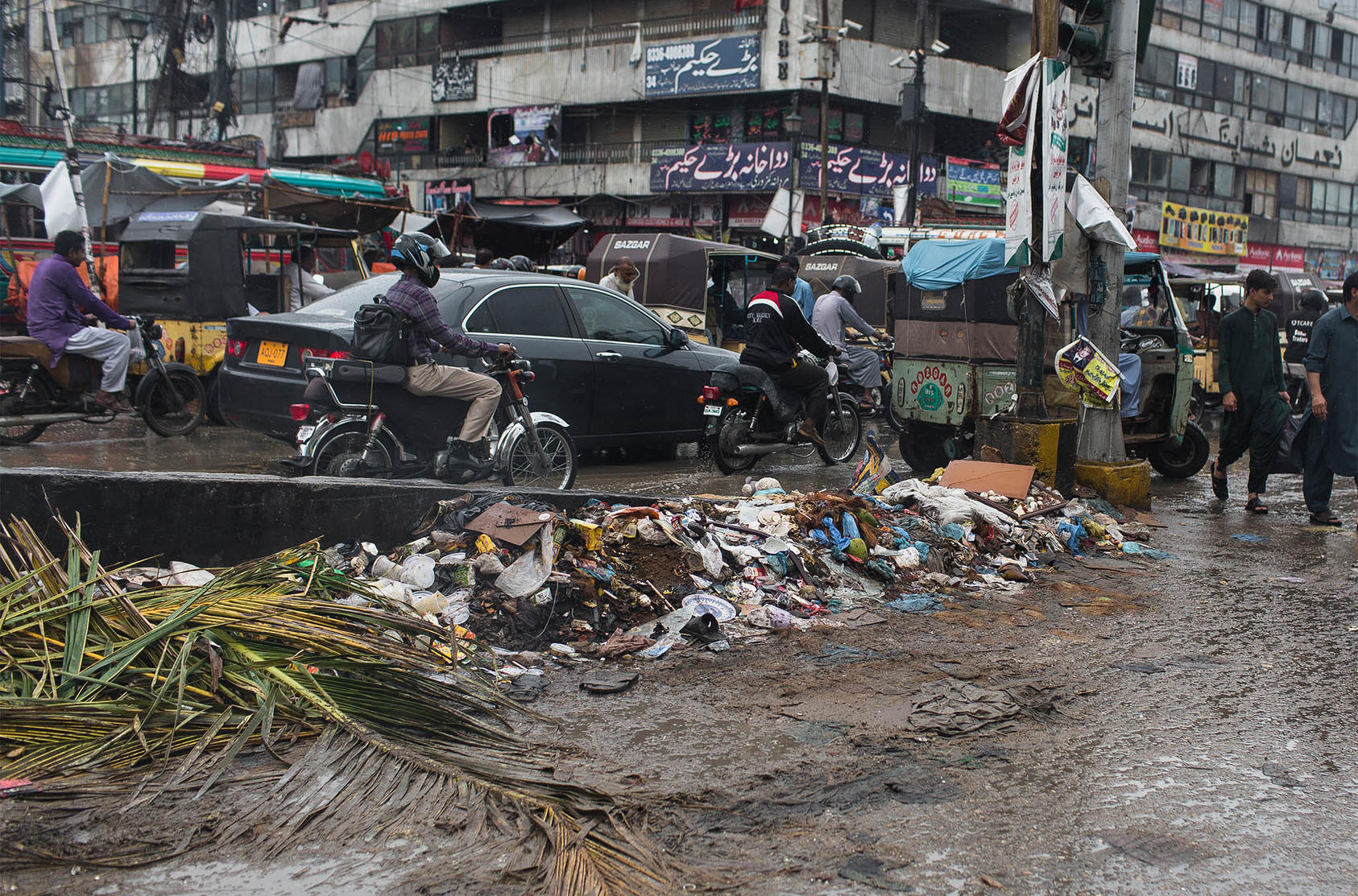Scavenging through Medical Waste in Karachi Presents Health Issues
Municipal workers and scavengers in Karachi are highly susceptible to deadly infectious diseases, as they come into contact with hospital waste on a daily basis without any safety precautions. The casual way in which municipal garbage is handled in the city, with no check to stop scavengers from extracting useful and recyclable material from it, is putting lives at risk. It poses a serious threat to public health and should be stopped immediately.

In recent years, there has been a growing problem with hospital waste disposal in major cities around the world including Karachi. Private contractors and scavengers collecting waste from different neighborhoods often do not ensure that the trash they collect ultimately reaches the city’s proper landfill sites. As a result, garbage is instead thrown at various dumping points near residential localities. This can contaminate groundwater and soil and cause respiratory problems for residents. In addition, it can attract vermin and other pests, which can spread disease. The government should provide maximum resources and support for developing an efficient system of hospital waste disposal. This is essential for protecting the public health and safety of residents in major cities.
Hospital waste can contain a range of dangerous pathogens, including bacteria, viruses and fungi. If this waste is not disposed of properly, it can easily spread infection to those who come into contact with it. Municipal workers and scavengers are particularly at risk, as they often have no choice but to handle hospital waste without the necessary protective equipment, often just to provide for their family. This puts them at risk of developing a range of serious illnesses, including respiratory infections, skin diseases and blood poisoning.

Therefore, it is essential that measures are put in place to protect municipal workers and scavengers from exposure to hospital waste. One way to do this would be to provide them with the appropriate protective clothing and equipment. Another would be to increase awareness of the dangers of coming into contact with hospital waste, and educate people on how to safely dispose of it. Only by taking these measures can we protect those who are most at risk from the dangers of hospital waste.
The government should provide maximum resources and support for developing an efficient system of hospital waste disposal because unsafe practices in this regard gravely compromised public health during the coronavirus pandemic. Hospital waste should be properly segregated before its disposal on a scientific basis. Adequate safety measures should be taken while handling hospital waste so that municipal workers and scavengers are not exposed to potentially fatal infections. The systems put in place for the disposal of hospital waste should be regularly monitored to ensure that they are effective and safe.

